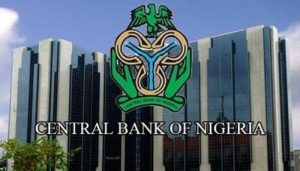CBN hikes interest rate third time in five months amid rising inflation
September 29, 2022658 views0 comments
By Rosemary Iwuala
After two previous increases in the Monetary Policy Rate (MPR) failed to make a dent, the Central Bank of Nigeria (CBN) on Tuesday raised the benchmark interest rate for the third time in five months in a continued attempt to tame the country’s rising inflation rate.
Read Also:
- Experts advocate efficient cybersecurity frameworks amid rising digital threats
- Inflation storm rages on in Nigeria as October rate hits 33.88%
- Bulls maintain tight grip on local bourse as buying interest propels ASI…
- NIMASA insists $360m sabotage cash intact amid misappropriation concerns
- Nigeria’s inflation, cost of living crisis vs. minimum wage
 The CBN’s Monetary Policy Committee at the end of its meeting voted to increase the MPR by 150 basis points to 15.5 percent. In May, the MPC had raised the rate from 11.5 percent to 13 percent before further increasing it to 14 percent in July.
The CBN’s Monetary Policy Committee at the end of its meeting voted to increase the MPR by 150 basis points to 15.5 percent. In May, the MPC had raised the rate from 11.5 percent to 13 percent before further increasing it to 14 percent in July.
But the rate hikes so far have failed to put the jumping inflation in check. Nigeria’s inflation rate has been on an upward trajectory since February 2022 when it recorded 15.70 percent, from 15.60 percent in January. It rose to 15.92 percent in March, 16.82 percent in April, 17.71 percent in May, 18.60 percent in June, 19.64 percent in July, before hitting a 17-year high of 20.52 percent in August, according to data from the state-run National Bureau of Statistics.
The MPC also raised the Cash Reserve Ratio (CRR), the share of a bank’s total customer deposit kept with the central bank as cash, to 32.5 percent, from 27.5 percent since July, according to Godwin Emefiele, CBN governor.
Emefiele, who read decisions after the MPC meeting, said 10 members voted in favour of the rate hike on concerns about the continued aggressive movement in inflation despite the rate hike at the MPC “meeting in May and July 2022, and expressed an unrelenting resolve to restore price stability while providing the necessary support to strengthen the fragile recovery”.
“We will keep increasing the interest rate to reduce the high effect of inflation,” Emefiele said, noting that “the tested monetary policy theory is that the easiest way to tame inflationary pressure is to raise rates”.
He explained that the MPC was of the view that with the aggressive policy normalisation of the economies, losing the policy stance could hurt the economy.
“CBN research study has shown that once inflation trends above 12.5 or 13 percent, it will retard growth. So, it is difficult for us, with all data available, not to go in a very aggressive way. To some, this is not expected because it increases the cost of borrowing, but this is the best we can,” Emefiele said.
“At this meeting, the option of reducing the policy rate was not considered as this would be gravely detrimental to reining in inflation. The committee thus agreed unanimously to raise the policy rate to narrow the interest rate gap and rein in inflation. The committee thus voted unanimously to raise the MPR,” he said.
But analysts are divided over the CBN decision.
Gabriel Idahosa, deputy-president, Lagos Chamber of Commerce and Industry, justified the CBN MPR hike as an effort to stem the rising inflation rate that had crossed the 20 percent mark.
“The economy now threatens to slide into runaway inflation – which is uncontrollable in the short term. This sharp rise in MPR may help to slow down the inflation if it is supported by significant efforts to reduce the production costs of goods and services,” he noted.
Olusola Obadimu, director-general, Nigerian Association of Chambers of Commerce, Industry, Mines, and Agriculture (NACCIMA), however, described the rate hike as “a pure panic measure”.
“They might think that by raising interest rates, investors would be attracted to remain and others to come in and invest. However, an economy such as ours that is heavily import-dependent, experiencing stagflation and risking recession, would not likely stand a chance,” he said.
He said Nigeria must remain committed to its debt servicing obligations and control an appetite for more loans, particularly those taken to finance non-developmental efforts – both at the federal and the state levels. Similarly, the federal government must incentivise companies sourcing their raw materials locally.
“Additionally, we urgently need to promote exports, harmonise the exchange rates and encourage import substitution,” he said.
